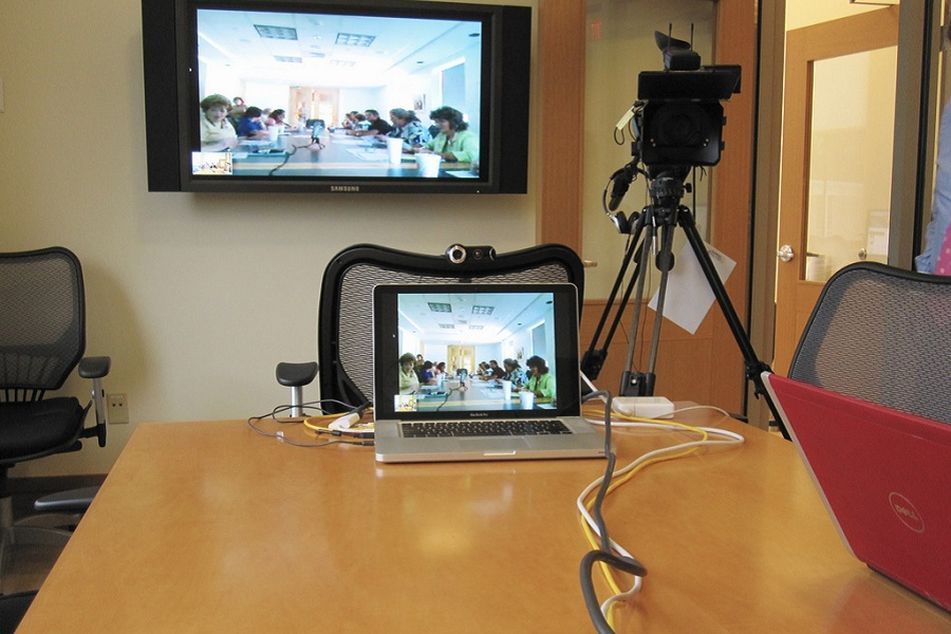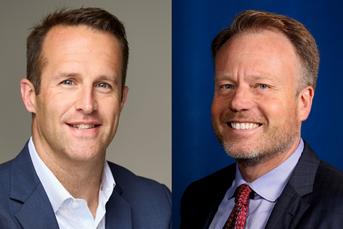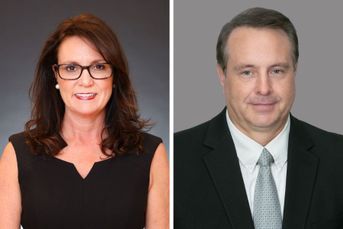‘Show clients your face’ and other advice for Zoom calls

Think like an event planner, said presenters on a webcast from The American College of Financial Services
Video calls have quickly replaced in-person meetings in the COVID-19 crisis, and there are a lot of things that advisers can get wrong, according to a recent panel discussion.
But a little prep work can ensure that Zoom calls are successful, said Deirdre Van Nest, whose business, Crazy Good Talks, provides speaking-skills coaching to advisers.
For group calls or presentations, “you have to be thinking like an event producer,” Van Nest said, speaking Thursday during a webcast hosted by The American College of Financial Services. “You need to plan out who is talking when. You don’t want to be doing that on the call, in front of your clients.”
Starting promptly is important. If a call is scheduled for 2 p.m., the presentation should not begin any later than 2:02, she noted. Otherwise, people become trained to be late — they might not tune in until 10 or 15 minutes after a call has started. And delaying a presentation for more than a couple minutes in order to accommodate everyone sends a bad signal to those who joined on time, she said.
“The people who are on are thinking, ‘What am I? Chopped liver?’” she said.
Further, calls shouldn’t start with “unpleasant pleasantries” that can frustrate or bore people. Rather, calls should start with strong, captivating messages, as people will decide within the first five to 30 seconds whether they are interested enough to stay on the call, she said. After that, presenters can go through “housekeeping items” or even mention that they will talk about them after the presentation, she said.
“One of the most powerful things is to ask the audience a ‘you-focused’ question … that gets them thinking about themselves,” she said. For small-business owners, for example, that might be a question about loans under the Paycheck Protection Program, she said.
Advisers should also ignore the temptation to turn off the camera — after all, video conferencing was designed to show faces, Van Nest said.
“Show clients your face,” Van Nest said. “They need to see your calm, confident demeanor.”
Clients can tell if an adviser is nervous, she noted.
“If you’re frantic, unconfident and scared, that energy will show up in your conversation,” she said. “If you don’t have things in control, you can’t reassure them.”
However, that doesn’t mean that advisers should sugarcoat things. Acknowledging the difficulty everyone is facing in this global crisis can help advisers connect with people, said David Blanchett, head of retirement research for Morningstar’s investment management group.
“We need to do away with this idea in this industry that being vulnerable diminishes your credibility,” Blanchett said during the webcast. “You can definitely say, “This is tough, we’re going through tough times. Let’s talk about how we’re going to get you through it.’”
Amid the current crisis, it is a chance to reassure clients, as their portfolios hopefully have been designed with a market downturn in mind, said Christine Benz, Morningstar’s director of personal finance.
But just as with in-person meetings, listening is more important than speaking, Benz said. And while silence can feel uncomfortable during a virtual meeting, it is not necessarily a bad thing, she said.
“People shouldn’t be afraid of silence,” she said. “It’s just a sign that someone’s thinking.”
Learn more about reprints and licensing for this article.








